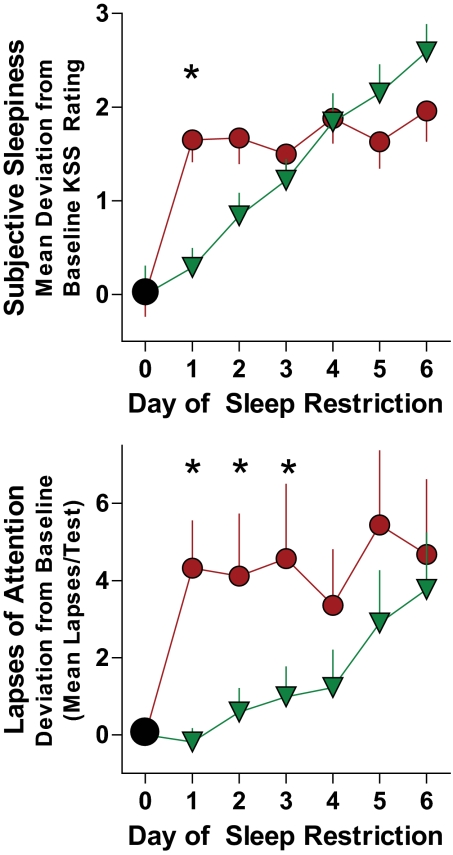FIG. 2.
Subjective sleepiness and lapses of attention under sleep restriction conditions. Effects of sleep restriction on subjective sleepiness (top panel) and lapses of attention (bottom panel). Subjective sleepiness and objective lapses of attention in sleep-replete subjects were assessed after 10 h of TIB per night and after restricting sleep to 5 h/night over 1 week (days 1–6 averages) in subjects randomized to placebo (red circles) or modafinil administration (green triangles). Subjective sleepiness is defined as mean deviation from baseline Karolinska Sleepiness Scale (KSS). Lapses of attention are defined as reaction times >500 ms and are quantified as the absolute deviation from baseline (lapses/test per day). For self-reported sleepiness, we noted significant main effects of sleep restriction (P < 0.0001), treatment (P < 0.0001), and their interaction (P < 0.0001). With modafinil administration, self-reported sleepiness was significantly reduced compared with placebo after the first and second nights of sleep restriction only (P = 0.0276). For lapses of attention, there was a significant main effect of number of nights of sleep restriction (P = 0.0012) and a borderline effect for treatment (P = 0.0647), and their interaction was nonsignificant (P = 0.1488). With modafinil administration, lapses of attention were significantly reduced compared with placebo during the daytime testing after the first and second nights of sleep restriction only (P = 0.0141); after the second and third nights, the borderline P values were 0.0779 and 0.0770, respectively.

